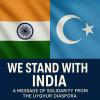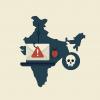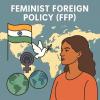A month after Pahalgam: How every Indian can expose Pakistan’s terror playbook
It has been one month since the brutal Islamist terror attack in Pahalgam, Jammu and Kashmir (April 22, 2025), where civilians were deliberately targeted and killed after being asked their religion — a cold-blooded and calculated act of violence. The incident stands as yet another grim reminder of the enduring and well-orchestrated threat posed by Pakistan-based Islamist terror networks.





